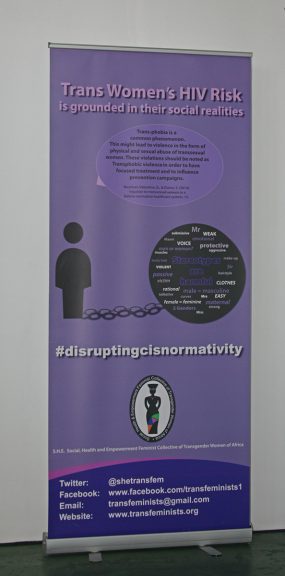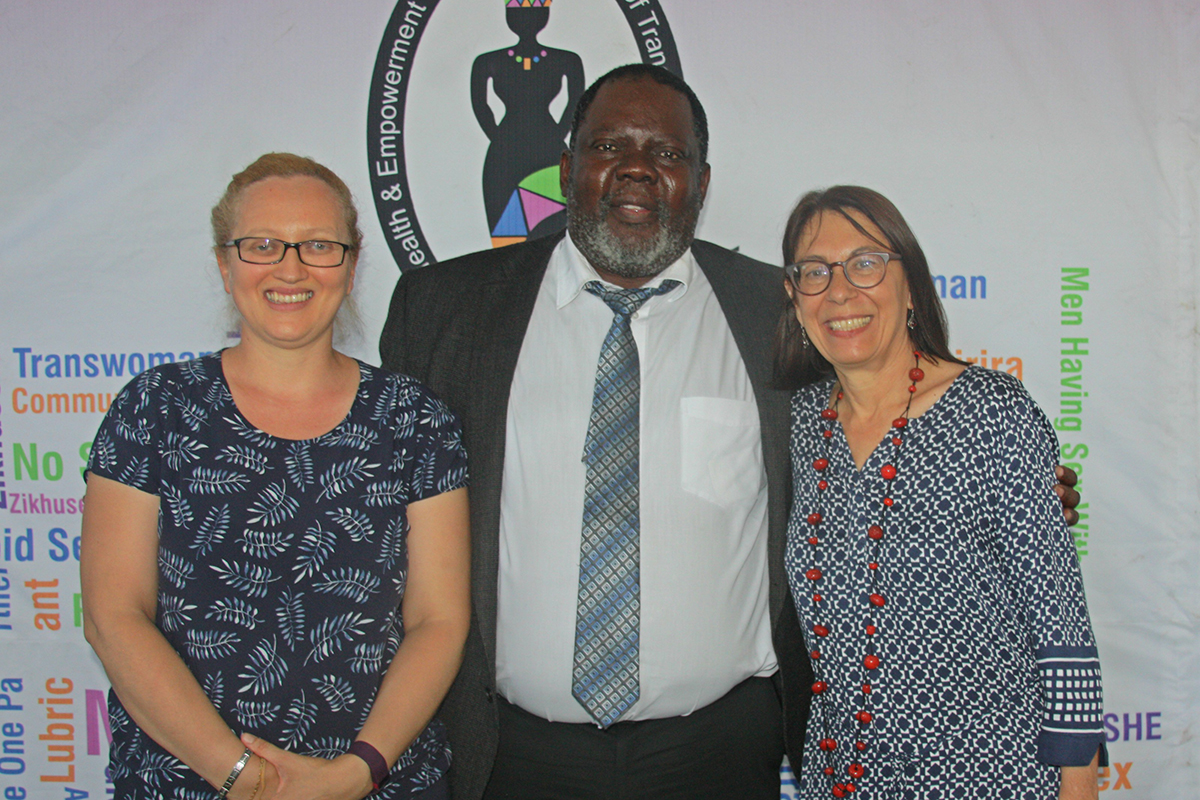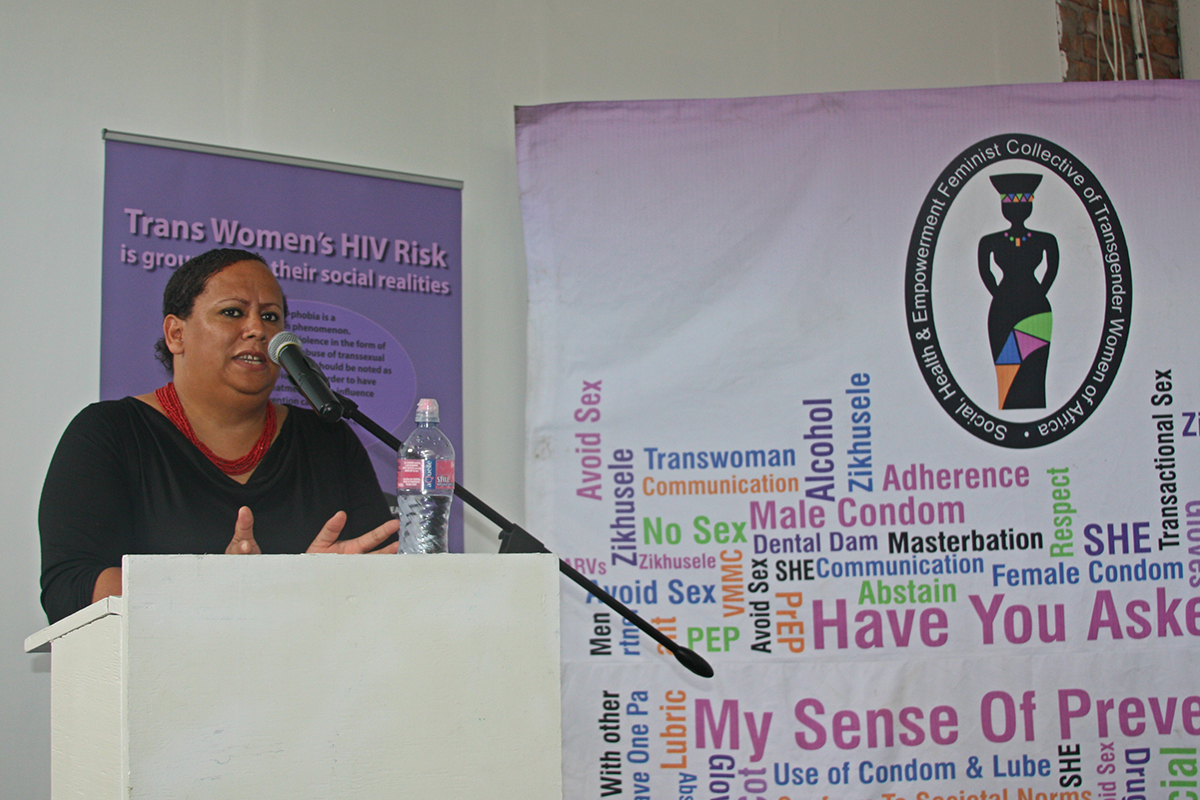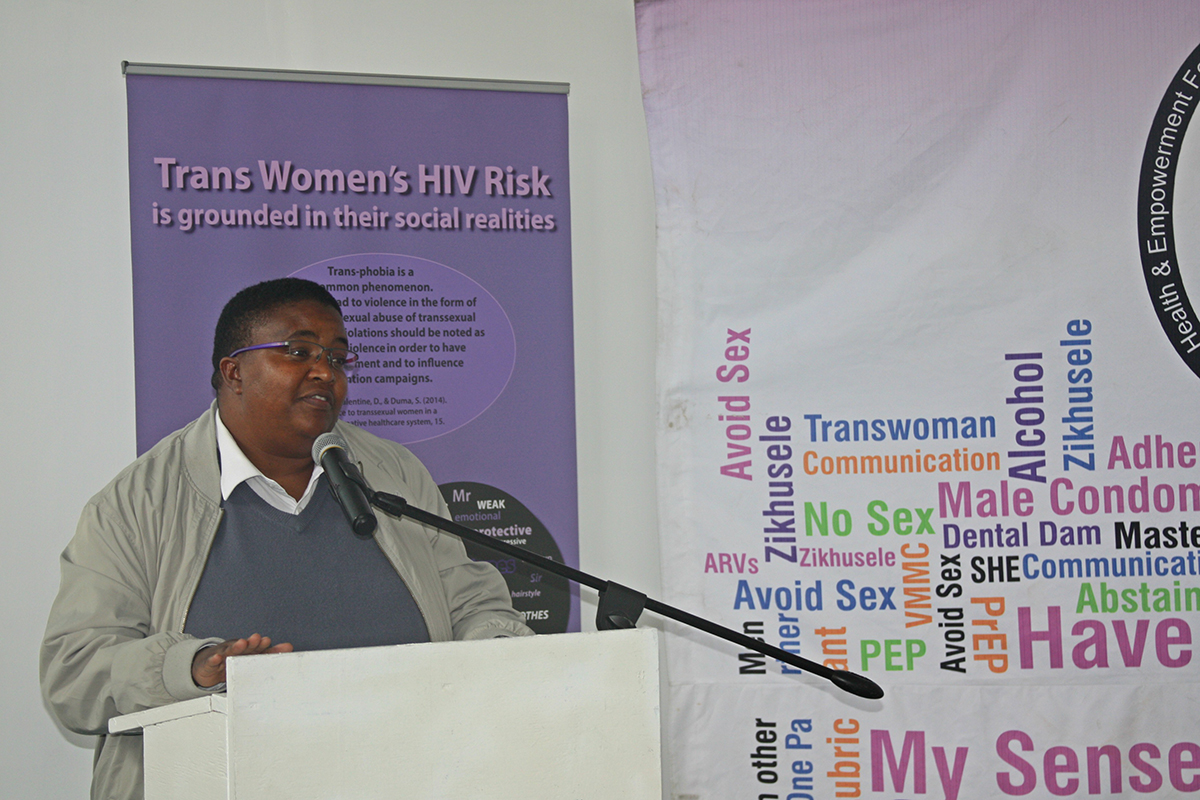HIV prevalence in transgender women
HIV prevalence in transgender women
The first study in African to assess the HIV prevalence in transgender women was launched in East London in the Eastern Cape, South Africa on January 10, 2018. The BotsheloBaTrans study, which celebrates the resilient spirit of transgender women who face constant discrimination from society, was initiated and is supported by the U.S. Centers for Disease Control and Prevention (CDC) through funding from the U.S. President’s Emergency Plan for AIDS Relief (PEPFAR).
The study is being conducted in three provinces in South Africa – Cape Town in Western Cape, Johannesburg in Gauteng, and the Buffalo City in Eastern Cape. These sites have been selected because there are civil society organizations, including Social, Health, Empowerment (S.H.E.) Feminist Collective in East London, Sex Workers’ Education and Advocacy and Taskforce, Gender Dynamix, and Access Chapter 2, in those provinces who are working with transgender women.
The Human Sciences Research Council (HSRC) will lead this first integrated biological and behavioral survey on HIV in transgender women. The HSRC will be supported by various South African and international academics and civil society partners.
The BotsheloBaTrans study, which began at the end of January 2018, is being conducted in three parts:
- A rapid ethnography will be implemented to explore the specific HIV vulnerabilities of transgender women.
- A presurveillance formative research will be conducted to inform the implementation of the proposed survey.
- A behavioral survey and biomarker testing will be conducted to assess HIV risk-taking behaviors and HIV prevalence among transgender women.

At the launch of the study, Professor Leickness Simbayi, HSRC’s Deputy Chief Executive Officer for Research said, “Through this study, we hope to contribute towards a deeper understanding of how HIV is affecting the transgender women population in South Africa. Globally, transgender women have been shown to be at high risk for HIV infection.”
Global statistics show that transgender women are nearly 49 times more likely to be infected with HIV than other adults of reproductive age. Despite this, there is little information in South Africa and the continent about the vulnerability of transgender women to HIV and the prevalence of the disease in this high-risk group.
Helen Savva, CDC SA’s Key Populations Lead, also emphasized the significance of this study in South Africa, saying, “The control of the HIV epidemic is only possible through improved coverage of the neglected populations.”
“It is for this reason that the CDC South Africa is very proud to have initiated this important study on transgender women. The result of this survey will be used by CDC and PEPFAR to improve services for high-risk women who have been mostly marginalized in HIV epidemic control,” Savva added.
Simbayi shared the same sentiments, adding, “Transgender women have often been neglected in South Africa’s response to HIV. This study is therefore an important first step in ensuring that transgender women have a voice – both in terms of how HIV affects transgender women, but equally about what can be done to help transgender women to protect themselves. Our public health campaigns must become more responsive if we are to impact decisively on combatting HIV and AIDS.”
The BotsheloBaTrans study plans to survey 300 transgender women in each of the three study sites, with a total sample of 900 participants. In addition, respondents will also have access to HIV antibody testing (to test for HIV prevalence), antiretroviral testing, HIV viral load testing (to test the level of HIV in the body), screening for TB, and testing for sexually transmitted infections.
Leigh Ann van der Merwe of S.H.E, a transgender woman and also one of the principal investigators, welcomed the launch of the study saying, “The transgender community is very pleased to be part of and support this study because it will give us a voice. For too long our reality as transgender women has been invisible to society and we are thrilled that we will now be seen and heard.”
Steve Letsike, Deputy Chairperson of the South African National Aids Council and Founding Director of Access Chapter 2 also expressed her support for the study. She said, “South Africa is one of very few countries in the world with a particular HIV plan to support its LGBTIQ (Lesbian, Gay, Bisexual, Transgender, Intersex and Questioning). This study shows South Africa’s commitment to addressing the issues faced by the transgender community, including stigma, marginalization, and the risk of HIV infection.”
The BotsheloBaTrans study is in conjunction with South Africa’s commitment to reaching the UNAIDS global targets to ensure that by 2020, 90% of all people living with HIV will know their HIV status, 90% of all people with diagnosed HIV infection will receive sustained antiretroviral therapy, and 90% of all people receiving antiretroviral therapy will have viral suppression. South Africa has committed itself to reducing new infections of HIV by 60%, from 270,000 in 2016, to less than 100,000 by 2022.


